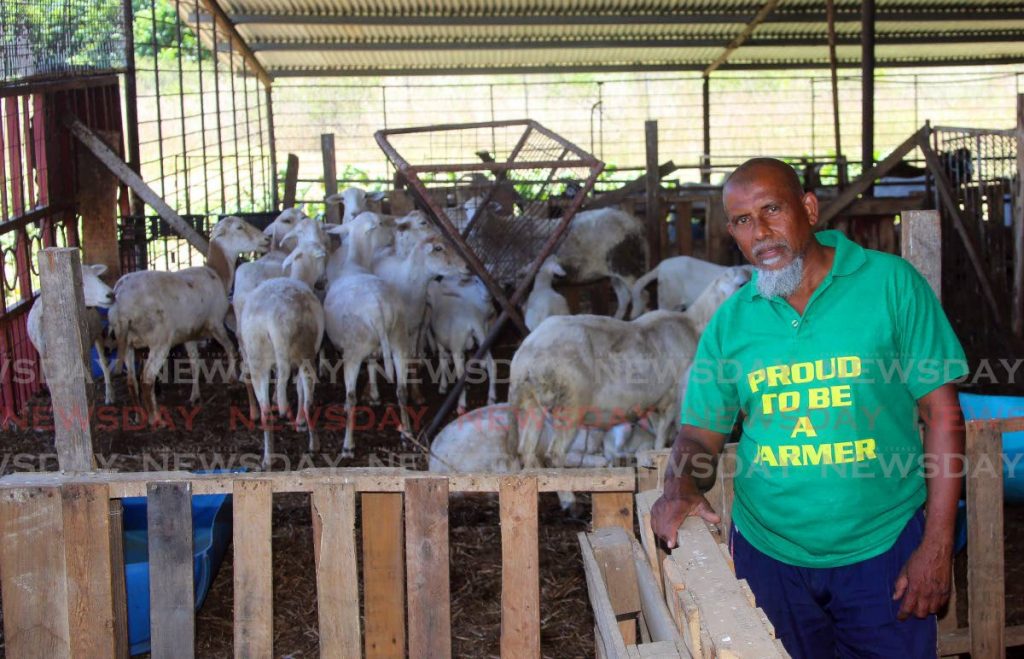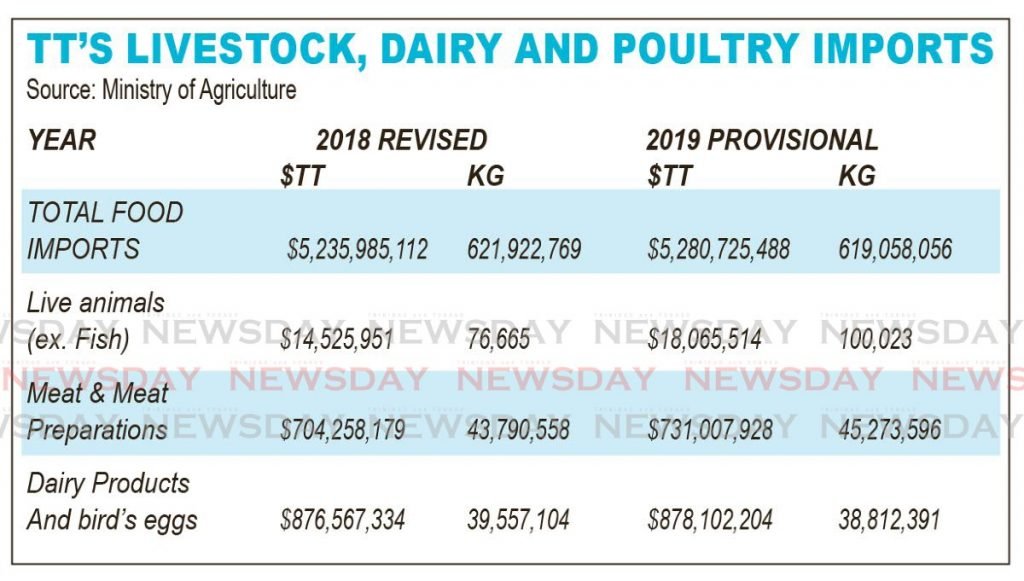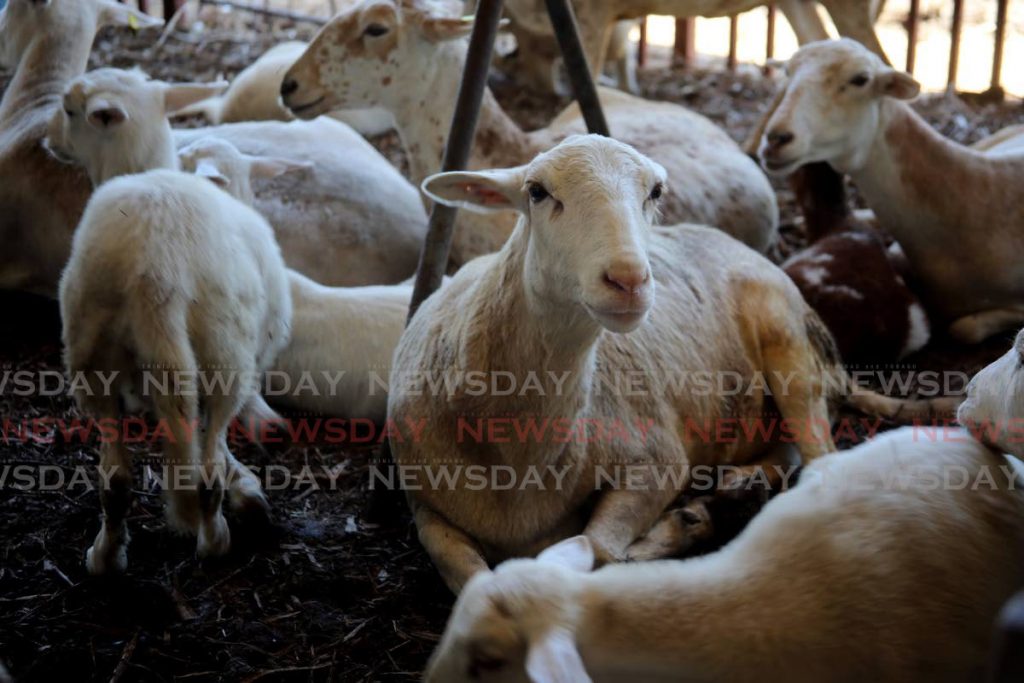Shiraz Khan: Food security must be priority

In the current market, a barrel of milk costs more than a barrel of oil. So president of the Trinidad Unified Farmers Association Shiraz Khan believes now is the time for Government to take serious and immediate steps to invest money, land and people in the dairy farming industry.
“In agriculture, if we don’t act immediately, we will face serious problems,” Khan said. “For over 30 years the farming industry has been the bastard child of our society. But if we care about this country, we will not wait for a three-month committee to get a report, then act on it.”
TT has had a history of ignoring the importance of farming – from sugar to rice and also to dairy – he said, but given the disruptions to global supply chains caused by the covid19 pandemic, food security – including reinforcing the country’s ability to feed itself through local production – should be a priority.
TT’s dairy industry has been facing pressure for years. Covid19, and the attendant economic fallout, could be a tipping point to drive it over the edge.
Khan, a livestock and dairy farmer by trade, said uncertainties over imports of products to make feed, limited access to water for irrigation and domestic use, and the harsh weather patterns in the dry season have all come together to put dairy farming in TT and agriculture on the whole at risk.
Khan called for immediate investment in food production, and said his trade, dairy farming and livestock farming, could end up in an even worse position because of the economic crisis stemming from covid19 than it is in now, after decades of mistreatment.
The dairy industry isn’t what it used to be as recently as a decade ago. In 2000, Khan said, TT produced close to 14 million litres of milk. Since 2015, that figure has dropped to three million litres annually.
Nestle, the Swiss food manufacturing giant that buys most of the milk produced by TT’s dairy farmers, pays a little more than $2 a litre; it also imports dairy from several other countries that produce milk cheaper. And despite attempts, even those of Nestle, to invest in the industry, TT’s milk still appears to be too expensive to buy because of production costs.

Dairy farmers have more than cheaper prices to deal with; they also have to deal with loss of time and resources when their milk is rejected. Add that to the current issues of a lack of access to feed and water, because of the effect of social distancing practices due to covid19 has had on businesses internationally and locally, and the immediate future of dairy in TT could seem rather bleak.
Feed Frenzy
The average gestation period for a dairy cow is about nine months, but that cow could produce milk for about a year. The quality of milk cows produce depends on the amount and quality of feed they are given. Proper feed is a combination of foraging feed, which is grass, and feed pellets. A technical bulletin from the Ministry of Agriculture said the combination of the two provides the cow with the protein, fats, fibre, water, vitamins and minerals necessary to produce high-quality milk.

Because of the lack of foraging, farmers have had their milk rejected.
“I am suffering because of the foraging,” Khan said. Bush fires and drought conditions have created a grass and water shortage.
“Today I couldn’t give my animals one-tenth of what I could. We used to depend on the Ministry (of Agriculture) grass bank, but that is down because of bush fires." Sometimes, he said, the bush fires are caused by people setting fires in or near their yards that spread through savannahs in which farmers set their livestock to graze.
Farmers used to have access to about 490 acres of grassland for grazing, Khan said, but fire has claimed about 200 acres.
Feedstock – called cow pellets – is usually made from agricultural by-products, including wheat, corn, soybeans, oats, molasses – and hops. Now, with social distancing and a slowdown in production, even hops used in brewing is hard to come by.
Most of the feed products also have to be imported. Khan estimates that farmers have to spend millions of dollars every year to bring in the raw material to make feedstock. Wheat waste, for example, makes up as much as 80 per cent of dairy feed ingredients.
“If you are having a problem with wheat and flour, how would you have livestock?”
It’s not just dairy and livestock farmers who have challenges accessing feed.
“God’s gift is grass, so if you don’t have feed, if we plant grass now, we could get in a month’s time.
"But chickens have to get feed. But if you don’t have feed how could you guarantee protein?”
The National Flour Mill is the main importer and distributor of wheat, corn and soybeans – all critical ingredients for animal feed.
“Seventy to 80 per cent of the ingredients to make poultry feed is wheat. If you have a shortage of flour and your wheat is limited to (flour), (how can you) make all these animal feeds?”
Dairy and poultry, particularly eggs and milk, are two of the main sources of protein in TT.
The duck farmers' association is also concerned about feed, and is having trouble getting eggs, many of which come from Miami, he added.
“You will end up with a problem with the pig farmers also. In America all the farmers were killing piglets, because they didn’t have feed.
"Within four to six weeks, we could injure the food industries if we don’t get more feed.”
Production in TT has always been low, he said, because of large imports.
“Our market has always been for the religious market, because we could not compete with the cheap imports. We make less than five per cent of the meat for eating.”
Most people who deal with sheep, goat and pigs rear them for religious festivals, he said.
Food insecurity
In the US, the Farm Bureau said in a report earlier this month that futures for May in live cattle and hog prices will decline more than 30 per cent, and milk futures for the next month were projected to decline by 28 per cent.
This decline in demand for these products has sparked a chain reaction, causing spoilage, with some commodities dumped by the tonne to balance the supply of food with the current demand. The same is happening in Canada according to a BBC report on April 6 which said a total of 500 farms have been asked to dump up to five million litres of raw milk a week.
“Last year we produced three million litres,” Khan said. “If you look at some of the videos circulating on BBC and so on, you would realise that some farmers in the US dump that amount in a day.
"How could people say we have enough food? We are now beginning to plant crops.”
Khan said it's possible that countries now faced with potential food shortages themselves may limit the amount they export.
He expressed concern that, because of the lack of investment in TT farmers, the economic effects of the virus and the dry season, TT farmers may not be able to handle the burden of feeding the entire nation, if, in the future, the task should fall totally on their shoulders.
“We were warned years ago that one day the oil bubble would burst.
"We have to understand that it is not anything significant that we need to do with agriculture (to make it work). Oil is not so important.
"We need to produce food. We need to feed this country.”
The price of a barrel of Brent crude (159 litres) over the last week has fluctuated anywhere between TT$140 and TT$175 per barrel (or about 88 cents a litre).
Farmers sell bulk milk at about TT$2.35 per litre. Cost of production, however, can be as high as TT$8 per litre, so farmers are running at a loss.
– with reporting by Carla Bridglal

Comments
"Shiraz Khan: Food security must be priority"